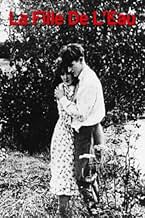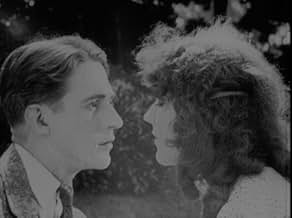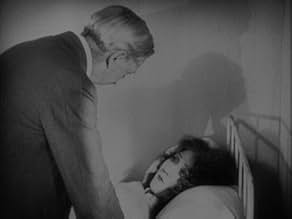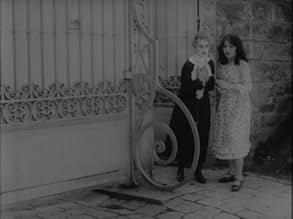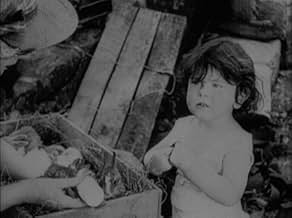After her father's death and her uncle having drunk all the inheritance, Virginia is left alone. She is accepted by a family of bohemians but a quarrel between the bohemians and the peasants... Read allAfter her father's death and her uncle having drunk all the inheritance, Virginia is left alone. She is accepted by a family of bohemians but a quarrel between the bohemians and the peasants coerce her to flee the peasants' riot. She is then helped by Raynal who falls in love wit... Read allAfter her father's death and her uncle having drunk all the inheritance, Virginia is left alone. She is accepted by a family of bohemians but a quarrel between the bohemians and the peasants coerce her to flee the peasants' riot. She is then helped by Raynal who falls in love with her but is too shy to tell her. Sheltered by his father, Virginia is robbed by her uncle... Read all
- Director
- Writer
- All cast & crew
- Production, box office & more at IMDbPro
Featured reviews
The heroine called Gudule (the name has become completely ludicrous in today's France ;no one is called Gudule anymore)is played by Renoir's favorite actress of the silent era ,Catherine Hessling.Her fate is worthy of Hugo's "les miserables" :mistreated by a wicked lecherous uncle ,taken in by a poacher and his mum, left in the cold and the rain...And finally she finds love :a nice young man falls for her and marries her.His background is very bourgeois ,but the parents do not seem to bother.That is to say we are far from "Boudu Sauvé des Eaux" ,"La Chienne" and even "Une Partie de Campagne" .
Best moment: the heroine's nightmare;people who know well Renoir's silent era will notice the similarities between this sequence and that of "La Petite Fille aux Allumettes" where the little match girl and her attentive escort go for a horse ride in the sky.The comparison stops here for " La Fille de l'Eau' is inferior to the Andersen adaptation.
Actually the main influence is DW Griffith but then again Hessling is not
Lilian Gish.
For Renoir's fans.The others might find it a bit obsolete.
But there is a dream sequence here that, as so often with these silent dreams, I urge you to see. It's about the girl transmuting in her feverish mind these barely comprehensible forces that threaten the virgin soul into images that will make sense; so an imaginative flight, a sensual, delirius game of hide-and-seek where the coarse, violent men haunt her down, where a piece of rope transforms into the snake of mischievous desire, a point-of-view rushing towards a door and the light outside, and finally the man who can protect her shown, quite literally, as a champion on his white horse galloping across the skies.
The overwhelming experience is so perfectly about the distorted imprint of the world. This should be seen next to the best moments in Epstein. There is shadow here cast by the eye in motion, emotional or otherwise.
Another note that intrigues, a blemish in the perfect picture of her well-to-do benefactor. His parents are shown at one point hastily leaving for Algiers on account of business; what was probably meant innocently at the time, now can only leave us wondering at his source of wealth.
The story begins with a young lady (Catherine Hessling) living on a barge with her father and uncle. When the father unexpectedly dies, her life falls to pieces as the uncle is scum--complete and total scum. She flees for her life and to avoid being raped and lands in the lap of a 'bohemian' (in this case, really just a thief who shuns work) and you know she can do better. However, when the bohemian and his mother take off, Hessling is all alone and without any resources. What will become of her? Tune in and see for yourself.
The film works well for some reasons other than just the fine direction and cinematography. Hessling's amazing eyes really catch your attention. They practically glow and really give her a gorgeous expression. Also, all the nice location shooting in the countryside was terrific--like a window into a lost way of life. Well worth seeing and well-constructed.
Did you know
- TriviaCharlotte Clasis's debut.
- ConnectionsEdited into Spisok korabley (2008)
Details
- Runtime1 hour 11 minutes
- Color
- Sound mix
- Aspect ratio
- 1.33 : 1
Contribute to this page



